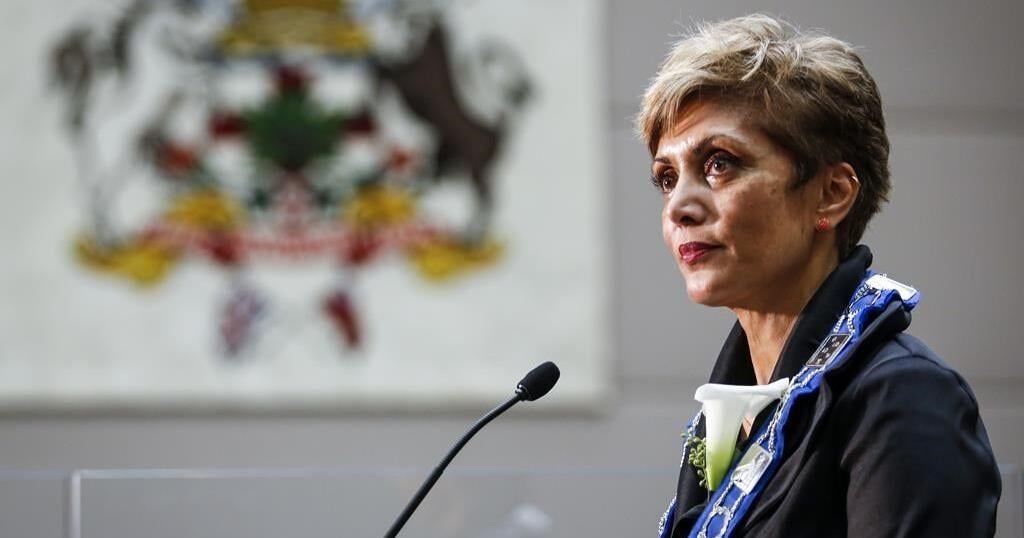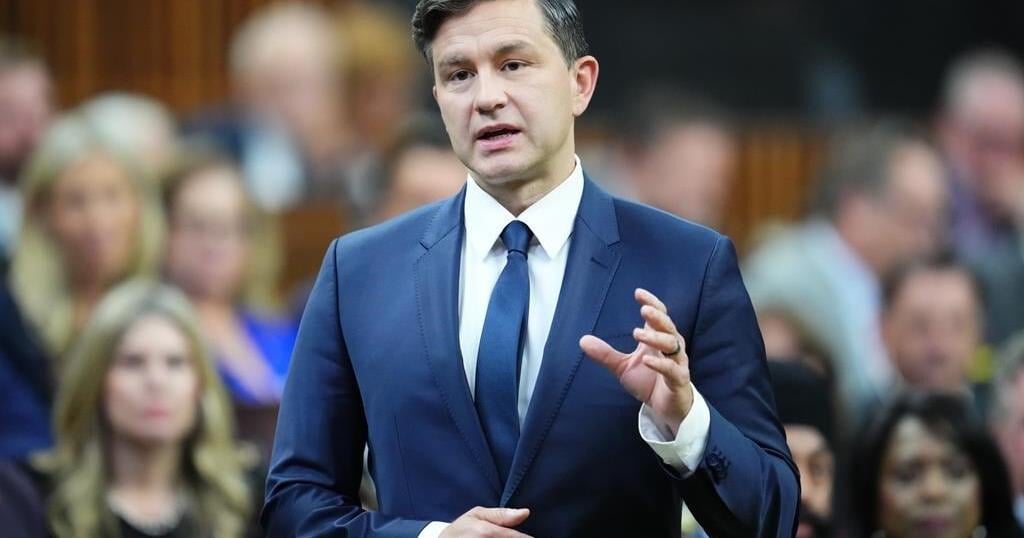EDMONTON – It could cost at least $2.1 billion to end work on Calgary’s first phase of its long-sought $6.2-billion Green Line light rail transit project.
City officials and Green Line board members say more than $1.3 billion has already been spent on land acquisition, utility work and new rail vehicles, and a wind down could cost another $850 million.
The numbers were revealed at a city council meeting Tuesday, as members discussed the fallout of losing Alberta government funding for the project.
Alberta Transportation Minister Devin Dreeshen has said the province will pull its $1.53-billion portion from the project if the city doesn’t rejig the line’s route and extend it farther south.
Transportation Minister Devin Dreeshen penned a letter to Gondek in early September saying the province would pull its $1.53 billion in funding from the $6.2-billion project if the city doesn’t rejig the line’s route and extend it farther south.
City chief administrative officer David Duckworth said Tuesday that pausing work to wait months for other alignment proposals is untenable at this stage in the process, and the city can’t afford to take on the risks.
He said Dreeshen’s announcement earlier this month has left the city no other option but to bring work to a halt.
If the project is shut down, more than 1,000 staff and contractors would be off the job by the end of the year, although some construction work would need to stretch into 2025.
Coun. Sonya Sharp said before the meeting that she wanted to see the project better handled and communicated among elected officials before it reached an impasse.
She said council owes it to Calgarians to consider the province’s proposal.
“Let’s just pause and think — let’s not knee jerk reaction this. Let’s maybe take 90 days or three months, whatever they need, to work this out, and let’s think of a proper work plan and get everybody at the table, including the federal government,” she said.
“We can’t just walk away and not be a part of this.”
Mayor Jyoti Gondek has said it’s clear the province isn’t willing to budge on rerouting demands, and the city is also mulling over how it might transfer costs to the province.
“(The province) has the ability to impose, really, anything they want on us. And by imposing the wind-down of this project, they have saddled us with costs that I don’t believe we should have to bear,” Gondek said in an interview Monday.
Among other changes, Dreeshen wants expensive downtown tunnelling off the table.
Gondek said such proposals have been studied and rejected, and subsequent meetings with Premier Danielle Smith’s United Conservative Party government haven’t moved the two parties to a compromise.
Dreeshen has declined to say whether the province would backstop liabilities for delayed or cancelled contracts, but reiterated that he is working to get alternative proposals from an independent engineering firm.
“We will continue to collaborate with the City of Calgary and our federal partners to ensure an orderly transition from an expensive and high-risk project with extensive tunnelling to a new and longer above-ground alignment that will benefit many more Calgarians,” he said in a Monday statement.
Council approved an updated, shortened line in July, with an added $700 million in costs to municipal coffers.
The premier has called the Green Line “the incredible shrinking project” and said it needs a complete rethink to be more cost-effective.
Speaking on her radio call-in show Saturday, Smith said she wants more direct political oversight of mega projects.
“I’d be looking to be quite a bit more involved than we were in the past,” the premier said.
Gondek said the only way forward is for the provincial government to oversee whatever project proposals it comes back with.
“In the world of the UCP government, it’s power and control. And they will leverage it to get what they want,” said Gondek.
The mayor said the city can’t afford to wait for more reports to begin another approval process. It’s too late for tweaks.
“If (the provincial government) wanted to delay things to figure out a solution, the time for that was July,” she said.
She added that the funding agreement for the Green Line with the federal and provincial governments expires March 31.
The dispute has become highly politicized, as former Calgary mayor Naheed Nenshi, who left city hall in 2021, became leader of the Opposition NDP in June.
Dreeshen has labelled the Green Line project the “Nenshi nightmare.” He has said the former mayor is responsible for mismanaging the project from the start and that it was never properly engineered.
Nenshi, in turn, has blamed Dreeshen for turning the project into a political football and putting jobs at risk.
Nenshi told a Calgary Chamber of Commerce event that the province is wasting money with its “petulant, toddler decision.”
“They lit $800 million on fire. Why? So they could insult me,” he said
The Calgary Construction Association has said the UCP’s decision undermines confidence in the reliability of government funding for major infrastructure developments across the province.
It has urged the province to reconsider.
This report by The Canadian Press was first published Sept. 17, 2024.

























